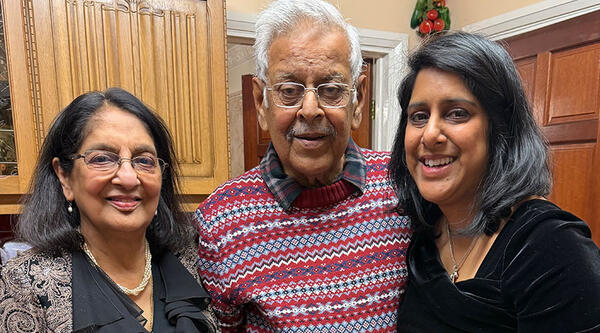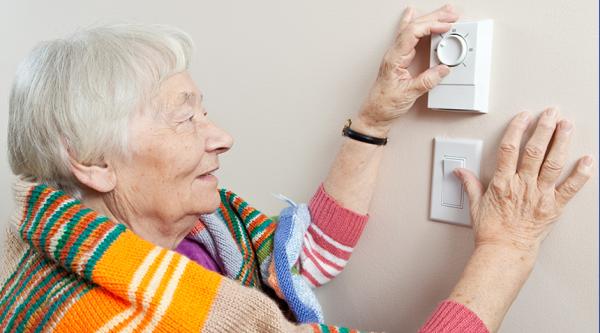The carer's assessment: support for carers
This page looks at how a carer for a person with dementia can get a care assessment, who does an assessment, how they are carried out, who makes the decision, and tips for making the most of the care needs assessment. It also explains the eligibility criteria.
Assessment for care and support
- Assessment for care and support in England
- The care needs assessment: support for people with dementia
- You are here: The carer's assessment: support for carers
- Financial assessments
- Organising and reviewing care and support
- Assessment for care and support - useful organisations
What is a carer's assessment?
Anyone who cares for a person with dementia is entitled to an assessment of their needs as a carer. This is called a carer’s assessment. It should identify what your needs are, and work out what type of support would meet your needs.
As a carer, the impact of dementia on your daily life can be challenging, and everyone needs support from time to time. Accessing care for yourself can help you to maintain your health and wellbeing and carry on caring for the person with dementia.
If you meet certain eligibility criteria (conditions), the local authority may pay for your support. Even if the person you are caring for is paying for their own care (self-funding), you may still be able to receive support. If the person you care for refuses an assessment or does not want care or support, you can still have an assessment.
Often a carer’s assessment is done at the same time as a care needs assessment for the person with dementia. This can be helpful, as your needs might be best met by support that is provided to the person you care for. For example, if replacement (respite) care is provided to the person with dementia, this allows you both to have a break.
How do I get a carer’s assessment?
You can ask for a carer’s assessment directly from your local authority’s social services department. This department may be called different things in different areas – for example, ‘adult services’. You can find their contact details:
- on a Council tax bill
- online
- at the GP surgery
- at the local library.
There are other ways this may be arranged:
- as part of a care needs assessment for the person you care for
- a referral from a health or social care professional
- a referral from a friend or relative. If someone makes the referral for you as a carer, they must have your consent. For a carer’s assessment to be carried out, you must agree to it.
Who does the assessment?
What to expect from a carer’s assessment depends on how it has been arranged. The assessment will usually be carried out by a social worker or care coordinator. It may involve other health professionals, such as a GP, but the social worker will arrange this if it is needed.
What happens at the assessment?
It involves a series of questions. You will have the opportunity to explain what you do as a carer, and also what help and support you would like. Sometimes you may be asked to give this information through a self-assessment questionnaire. You can ask the local authority for support filling this out if you need it. Some local charities may also help with this.
Where does the assessment take place?
If the carer’s assessment is carried out at the same time as a care needs assessment, it is likely to be in the home of the person getting the care needs assessment. The carer’s assessment may take place separately from the care needs assessment of the person with dementia, or the person with dementia may not be having an assessment themselves. In this case, the assessment should take place somewhere that is convenient for you, for example in your own home.
You should be given the list of assessment questions in advance so you can think about your needs and prepare your answers.
What are telephone assessments?
Assessments can be carried out over the phone. However, this is only appropriate if you are already known to the local authority and the assessment is a result of a change in your needs, or if your needs are not complex.
If you are offered a self-assessment questionnaire or telephone assessment, you can ask to have the assessment in person. You should explain why you need a face-to-face assessment. If a face-to-face assessment is still not offered you can make a complaint about the lack of support you are receiving in having your needs assessed.
A carer’s assessment: tips
If you are going to have a carer’s assessment, there are a few things you can do beforehand. Look through the assessment questions and take your time to think about your answers. You should have been given these questions before the assessment – ask for a copy if you have not.
You may want to make notes, so you can tell the assessor what support you feel you need. It might seem like a lot to prepare, but even thinking about some of the details listed below will help you to get more from the assessment.
- Make a note of what you want from the assessment. For example, that you want to stay in your job, or you want your relative to live nearer to you so that you can give care more easily.
- Write a list of the care and support that you give the person. Include when, where and for how long. Include any time that you might spend checking that things are OK or being ‘on call’ in case of problems, or because you are worried.
- Think about what care and support you can continue to provide. You should not feel pressured into providing care that you are not willing or able to give.
- Keep a diary for a few weeks with all the tasks that you do to support the person – for example, making several bus journeys, preparing their meals, or doing a daily shop.
- Make a note of how your caring role may be difficult at times – possibly making you feel irritable, stressed, depressed or tearful.
- Take note of the things that you are unable to do as a result of caring, for example cleaning your home, your childcare responsibilities, taking on extra hours at work or maintaining social activities and seeing your friends.
- Think about and list what support would help you. This may be someone else providing care temporarily for the person so you can have a break, or it could be some specific help for you, such as equipment or training. For example – driving lessons so you would no longer need to use public transport.
- Think about what support you may need in the future as the person’s condition gets worse.
If you’d feel more comfortable, ask for a separate carer’s assessment without the person you care for being present. Be open and honest. This may be difficult, but for the assessment to work the person carrying out the assessment needs to understand your situation.
What happens after an assessment?
Local authorities will give care and support to carers who meet certain eligibility and financial criteria (conditions). They have to carry out a carer’s assessment first and then they can conduct a financial assessment.
A carer must have an ‘eligible care need’ for a local authority to consider paying and arranging for their care and support. These care needs are organised into ‘criteria’ that apply across England. If you are told that you are not eligible because you do not meet these criteria, but you feel that you do, you will need to make a complaint. You will need to explain why you believe your needs do meet the criteria.
Will the local authority fund care and support?
There are three criteria that a carer must meet for the local authority to consider funding their care and support.
1. The carer’s needs are due to providing care to the person with dementia to help them manage their everyday activities.
2. As a result of providing care the carer’s physical or mental health is getting worse (or is at risk of getting worse). Or they are putting themselves or others in danger. Or the carer is unable to achieve any of the following without assistance or where this causes pain, distress and anxiety:
- carry out caring responsibilities for a child – for example, having responsibilities for children and grandchildren
- provide care to another person or people – for example, caring for another friend or family member
- maintain a habitable home environment – for example, keeping the home clean and safe and being able to manage and pay the bills
- manage and maintain their own nutrition – for example, having time to go shopping and prepare meals for themselves and their family
- develop and maintain family or other personal relationships – for example, staying in touch with family and friends
- engage in work, training, education or volunteering – for example, continuing to work, attending a course or volunteering
- make use of necessary facilities or services in the local community and have the opportunity to use local resources – for example, going to the gym or cinema
- engage in recreational activities and have leisure time – for example, having some free time to read a book, or take part in hobbies.
3. Because of these needs there is, or is likely to be, a significant impact on the carer’s wellbeing.
- Page last reviewed:









